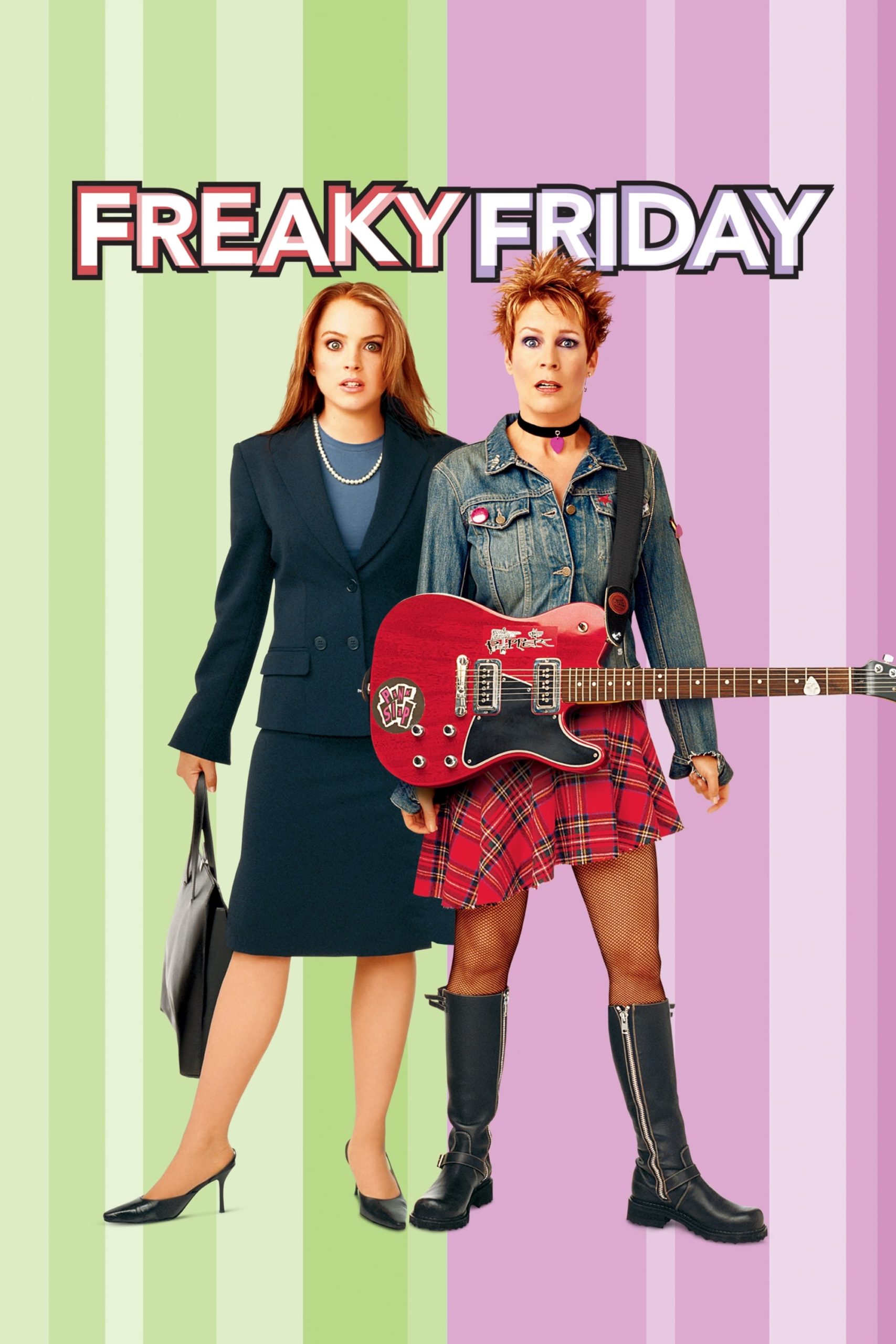
Mother and daughter bicker over everything -- what Anna wears, whom she likes and what she wants to do when she's older. In turn, Anna detests Tess's fiancé. When a magical fortune cookie switches their personalities, they each get a peek at how the other person feels, thinks and lives.
28 Nov Freaky Friday (2003)
Borrowed Eyes
I am convinced that many movies are about movies as a matter of demand. When we enter that darkened room, we often expect not be taken to another real reality, but to a movie reality that has some degree of self-awareness.
A great many of these movies have some sort of body-shifting. The plot mechanics are simple: a dead person in a borrowed body; bodies (or identities) shifted, sometimes a simple con. “Face/Off” at least had a novel way of getting us there.
Here we have the magical body swap. Once that’s set up, we have the sweet situation of knowing that we have an actress playing a role playing a role. The rest is all skits exploiting that as the story moves through some trite, incidental story.
The question is how much folding can an actor do? The idea is that we are supposed to see Jamie Lee (wife of the prince of folding: Christopher Guest), the Mom, and the daughter all at once. Folded acting; actors — real ones — live for this sort of opportunity.
How different actors deal with this is a survey of how the world is put together.
We can have the silly model. That’s where the actor just goofs. Its what Jamie Lee does here and is made possible because teenagers (at least in films that have a fake “adult” perspective) are inherently goofy. Silly is fun.
We can have the parody. This focuses not on making fun of the character, but of the other actor. “Face/Off” had this meta-goof. “Third Man” is the icon for this sort of thing, metaparodied in “Heavenly Creatures”.
We can have a parody of the whole thing: “Cat People” was about the misfit of sex in movies reflected by the perversion of humans in cat bodies.
What’s the point? That American humour — even a movie as supposedly trivial as this — is sophisticated and highly self-referential. Check out the references: she is a writer, an analyst and appears on a TeeVee show. That adds so many more layers and we love it:
Annabelle is in Tess who is on TeeVee as the writer of the book to support the ideal of her publisher lover. That’s five folds, and it matches the previous record of “Nurse Betty”.
As balance, there’s the bit the other way as well: Tess in Annabelle as a rock performer, possibly the most “ironic” type in our society.
Posted in 2003
Ted’s Evaluation — 2 of 3: Has some interesting elements.


No Comments